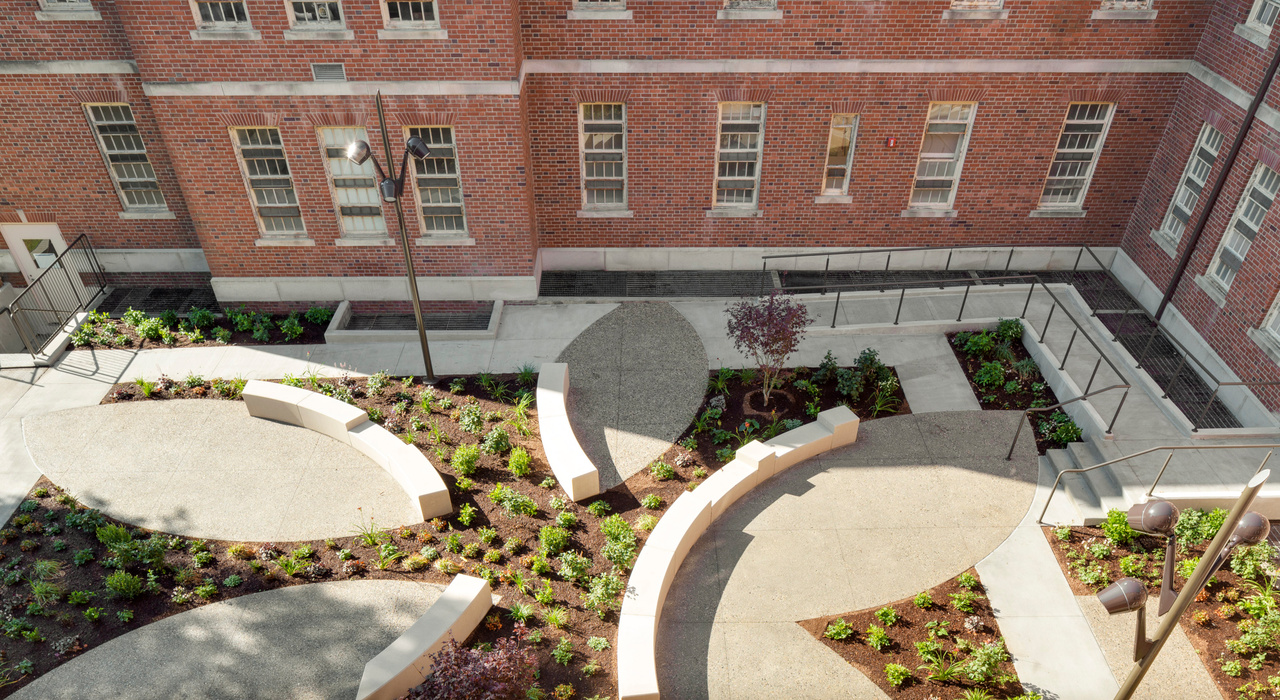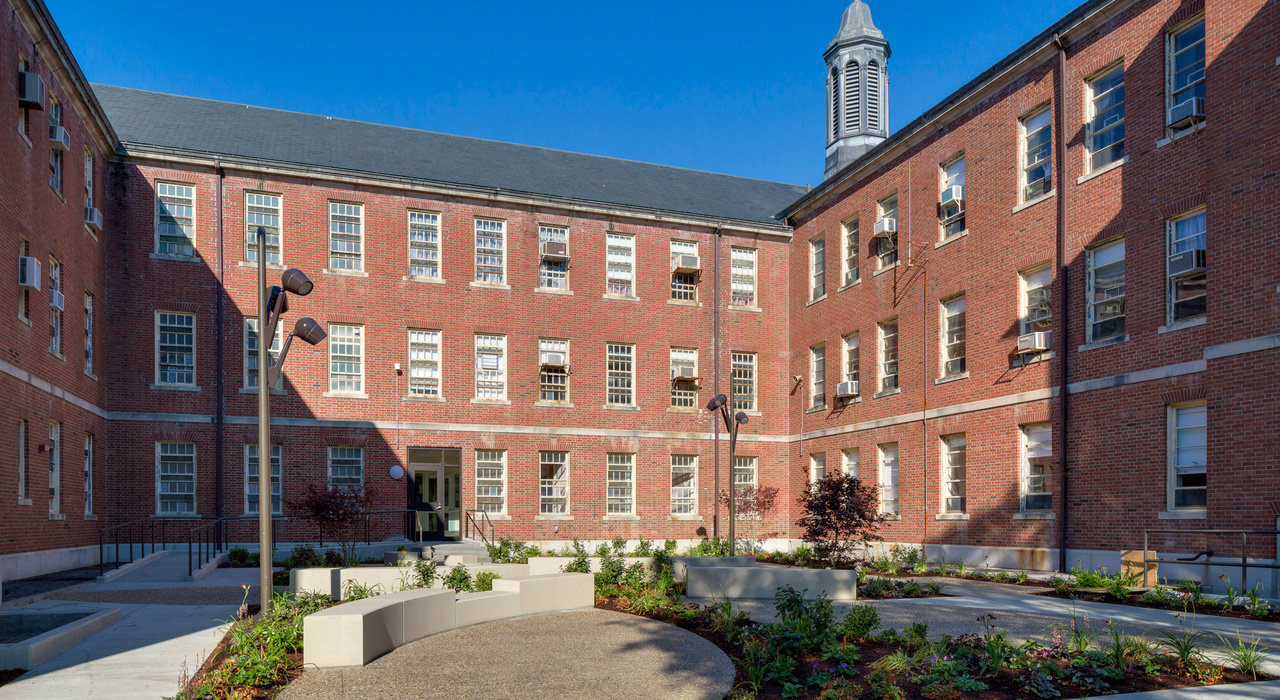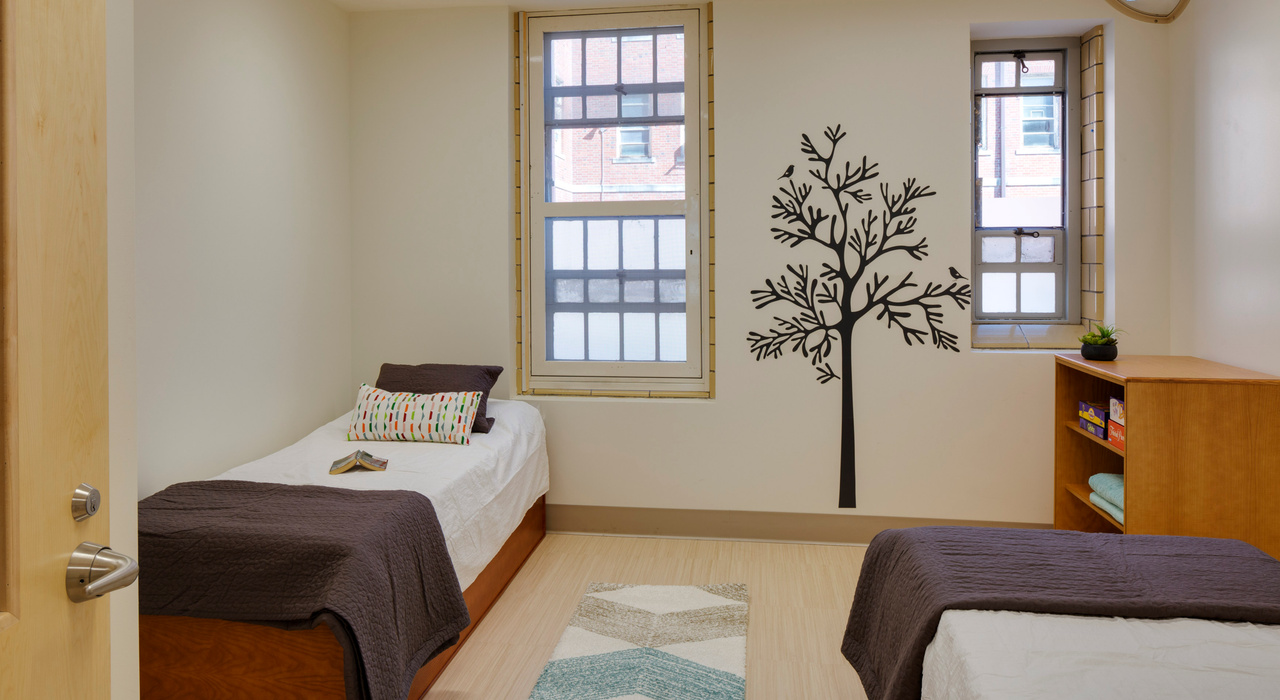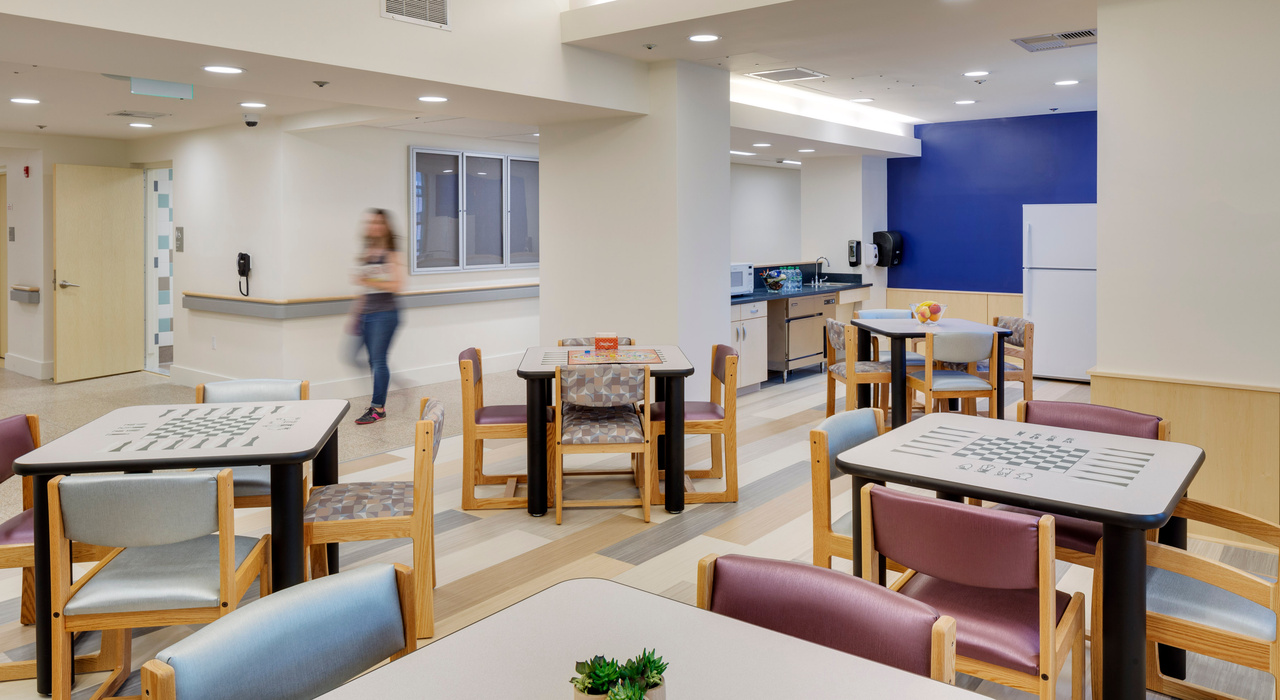SITUATION:
The Taunton State Hospital WRAP (Women’s Recovery from Addictions Program) Center is a secure facility that houses women who are recovering from addiction and substance abuse. The renovation project included 17,050 square feet of the historic Taunton State Hospital’s Chambers Building. The 45-bed facility features a reading and dining area; medical exam rooms; laundry room; exercise equipment; and an outdoor courtyard. Construction began on December 1, 2015, and the WRAP Center was open for occupancy on July 5, 2016. Within a six-month time-frame, the former building was transformed into a welcoming, home-like environment. Spaces were designed to give individuals a sense of control and identity. Complete HVAC and life safety systems were installed. Two beautifully-landscaped courtyards with site furnishings and walks were created to give patients access to the outdoors.
CHALLENGES:
- Fast-tracked by Governor Baker as an emergency project
- Transform an institutional environment into a home-like therapeutic treatment center
- Renovations completed adjacent to an existing fully operational psychiatric hospital building on the historic 165-year-old campus
SOLUTIONS:
- The Construction Phase took just over six months – an accomplishment achieved through a highly collaborative owner team (DCAMM, the State’s building agency and Department of Mental Health), architect (Studio G) and builder (BOND).
RESULTS:
- Final renovation provided two new wings of patient rooms, an administrative wing, lounges, dining rooms, nurses’ stations, medical rooms and other support spaces
- The project was highly successful in transforming an outdated building on an under-utilized campus into a new state-of-the-art treatment and recovery facility with a nurturing soul of 165 years of history
- Taunton State Hospital WRAP (Women’s Recovery from Addictions Program) project was awarded the Preservation Massachusetts 2017 Paul and Niki Tsongas Award in the category of Best Use – Community and Social Services recognizing those who have played an extraordinary role in promoting the preservation of the Commonwealth’s past for the benefit of the future.






